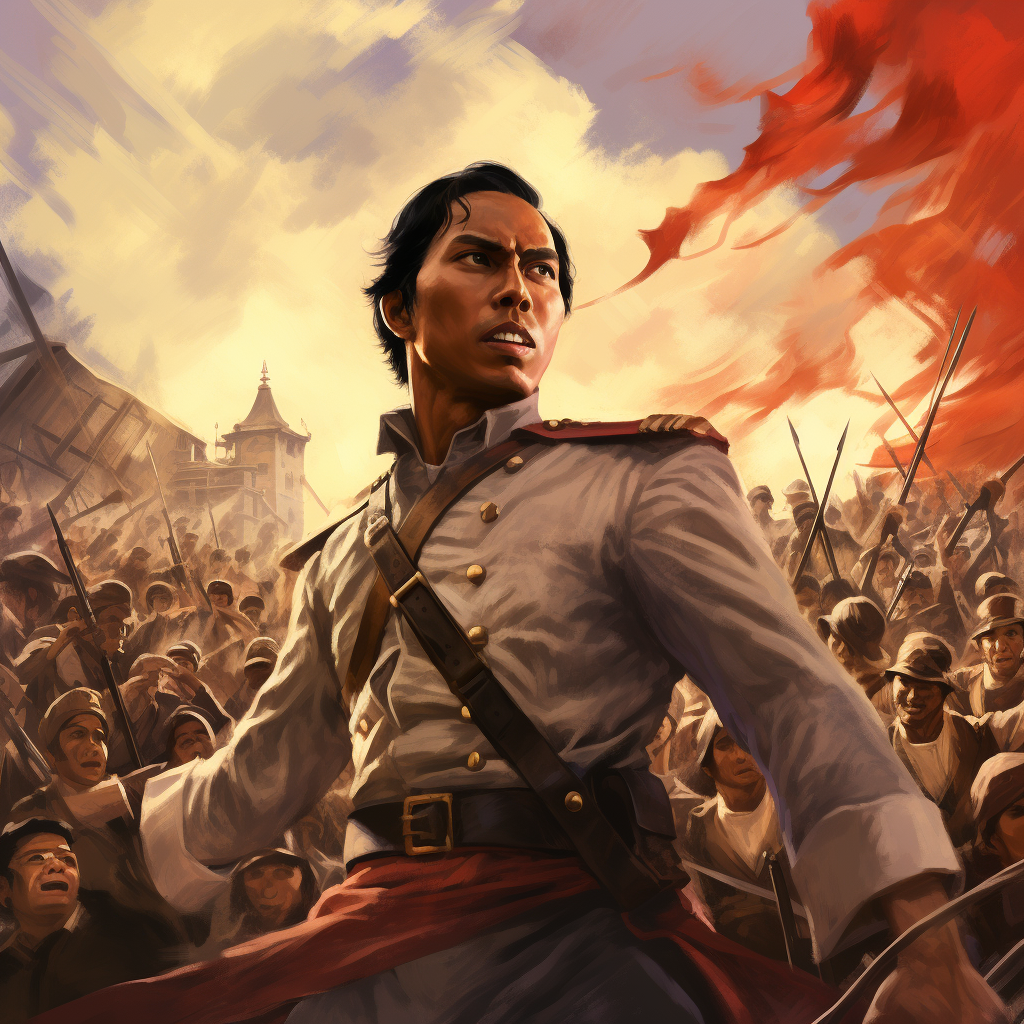In the rich tapestry of Philippine history, one name shines brightly as a symbol of unwavering patriotism and a fierce advocate for freedom – Andres Bonifacio. More than merely the founder of the Katipunan, Bonifacio’s profound connection to Masonic principles played a pivotal role in shaping his unique leadership style. As modern Filipinos navigate today’s challenges, there is a wealth of inspiration and guidance to be gleaned from Bonifacio’s Masonic influence and leadership acumen.
The Masonic Tapestry Woven into Andres Bonifacio
Andres Bonifacio, a proud member of the Masonic brotherhood, drew inspiration from its bedrock principles of equality, liberty, and fraternity. Masonry significantly influenced his worldview, underscoring the importance of unity and the relentless pursuit of knowledge. As a Freemason, Bonifacio found himself within a network of kindred spirits who shared a collective vision for a free and sovereign Philippines.

The historical significance of November 30, enshrined as a national holiday through Act No. 2946 on February 16, 1921, commemorates the birth of Andres Bonifacio. His enduring impact on Philippine history began with the establishment of the Katipunan, a clandestine society born out of the realization that peaceful reforms were ineffectual against Spanish oppression.
Under the banner of the Katipunan, Bonifacio orchestrated a nationwide revolution, calling for recruitment that resulted in simultaneous raids on Spanish strongholds. Assuming the role of commander in chief of the revolutionary army, he showcased his leadership prowess by personally leading battles in Manila. The struggle for freedom, once confined to isolated pockets, evolved into a nationwide campaign under Bonifacio’s guidance, all with the singular objective of overthrowing the colonial oppressors.
Leadership Tenets of Andres Bonifacio
Courage and Conviction: Bonifacio’s leadership was characterized by unyielding courage in the face of adversity. His commitment to the revolutionary cause, despite encountering victories and setbacks, stands as a testament to the transformative power of conviction in leadership.
Inclusivity and Unity: Bonifacio’s inclusive leadership style, evident in the diverse membership of the Katipunan, serves as a model for contemporary Filipinos. Embracing diversity and collaborating toward shared objectives strengthens the societal fabric.
Empowerment Through Education: Bonifacio’s emphasis on education as a tool for liberation remains a timeless lesson. Today’s Filipinos can prioritize education to empower themselves, fostering progress in the digital age.
Emulating Bonifacio’s Legacy Today
Cultivate Unity and Inclusivity: Filipinos can draw from Bonifacio’s legacy by nurturing unity and inclusivity in their communities. Regardless of differences, embracing diversity and collective action can fortify societal bonds.
Lead with Courage and Conviction: Contemporary leaders can emulate Bonifacio’s fearlessness in addressing social issues and advocating for change. Courageous leadership is indispensable for overcoming challenges and steering toward a brighter future.
Prioritize Education and Empowerment: Bonifacio’s belief in the transformative power of education remains pertinent. Filipinos can prioritize both formal and informal education as a means to empower themselves and contribute to national development.
In conclusion, Andres Bonifacio’s legacy as a Masonic luminary and revolutionary icon continues to inspire Filipinos today. His dedication to unity, courage, and education provides a timeless blueprint for effective leadership. By embodying these qualities, Filipinos can contribute to an ongoing journey toward a more inclusive, empowered, and united nation – just as Bonifacio envisioned during the tumultuous days of the Philippine Revolution. November 30, is not just a holiday; it is a poignant reminder of the birth of a freedom fighter whose indomitable spirit resonates through the annals of history.